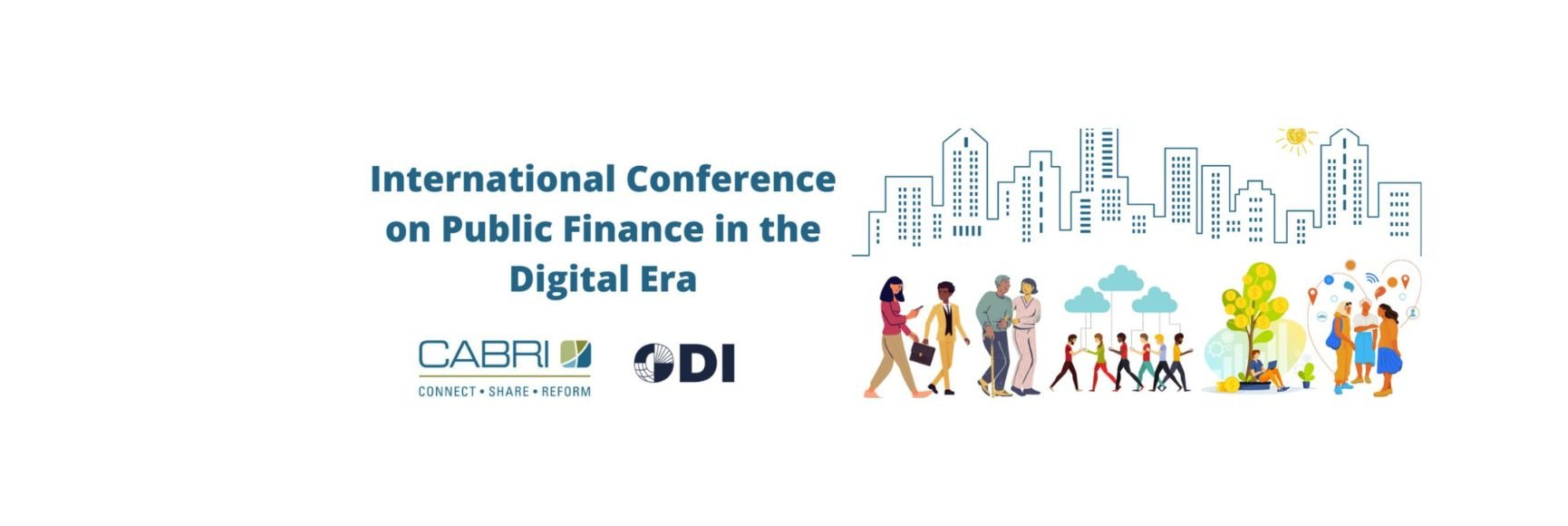On July 18, 2024, President Cyril Ramaphosa gave a speech to open South Africa’s new parliament outlining the Government of National Unity’s priorities and plans for the next 5 years. Digital government enthusiasts will be excited about his use of the term digital public infrastructure (DPI) in the speech. Those who are enthusiastic about bringing public finance into the digital era should be excited about it too, and ODI are delighted to be partnering with CABRI on a conference on public finance in the digital era in South Africa in November
1. The President mentioned DPI
DPI is a relatively new term that has been trending in global development circles since the COVID-19 pandemic made it clear that digital capabilities were no longer just a ‘nice to have’ for governments.
Some people may have heard about DPI for the first time when the Rockefeller Foundation published this report in 2021, when India made it a centre-piece of their G-20 Presidency in 2023, or with the announcement of a Global DPI Summit in 2024.
Definitions of DPI are slippery, but examples are relatively straightforward. Digital identity (Aadhar in India), payments (Pix in Brazil), and data exchange (X-road in Estonia) are all real-world examples of digital systems that operate at societal scale, providing means to many ends, and are being emulated by other countries.
In his speech President Ramaphosa emphasised investing in both digital identity and payments. Both could play an important role in improving the management of public finances, for example in relation to revenue collection, and the delivery of a range of public services.
2. The new government expects the finance ministry to get behind DPI
The President’s specific reference to DPI was in relation to Operation Vulindlela - a cross-government initiative for monitoring and supporting key structural reforms and making recommendations to the Cabinet and the President to fast track their implementation.
He announced that “in its second phase, Operation Vulindlela will focus on reforming the local government system and improving the delivery of basic services, and harnessing digital public infrastructure as a driver of growth and inclusion”.
The Vulindela Unit that coordinates this initiative sits in both the Presidency and the National Treasury (South Africa’s finance ministry). That’s significant because digital transformation is horizontal in nature requiring the support of the central institutions of government.
It is no coincidence that the new UK government is also pushing its finance ministry (HM Treasury) to get behind its digital agenda which is now to be a joint endeavour between the newly constituted DSIT (Department for Science, Innovation and Technology), the Cabinet Office, and HM Treasury. As Ben Terrett from Public Digital pointed out last week “digital government in the UK has never had the powerful central departments fully united behind it before. Very few countries have. If that centre holds, it means everyone can go faster and further.”
3. Finance ministries could play a bigger role in shaping the G-20 agenda on DPI in 2025
Back in January we held a roundtable at ODI looking at how the DPI agenda was likely to evolve after India had made it a central part of its G-20 Presidency. While it seemed certain that Brazil would pick up the DPI baton in 2024, participants were less sure if and how South Africa would do the same.
One contribution South Africa’s G-20 Presidency might make to the DPI agenda in 2025 is to get their own and other African finance ministries more engaged. This could be significant for at least three reasons:
- Digital transformation is not just about adopting new technologies. It’s about “applying the culture, practices, processes & technologies of the Internet-era to respond to people's raised expectations”. As central institutions, finance ministries could play a big role in championing these broader changes in thinking and working across government.
- Crucial to this change is rethinking the way digital transformation is funded and delivered, and finance ministries play the most central role on questions of funding.
- Finance ministries need to modernise their own systems for managing public finance. Indeed the technology that underpins the management of South Africa’s public finances is dated, and the government has had a hard time replacing it. Bringing DPI principles and approaches into finance ministries could provide the necessary impetus for improving how technology is deployed for the management of public finances across government.
For all these reasons we are delighted to be partnering with CABRI on an international conference on Public Finance in the Digital Era in Johannesburg on the 19th and 20th of November. Some of the big questions we will be grappling with include:
- What are the expectations for the management of public finances in the digital era, and what can Ministries of Finance do to meet those expectations?
- What opportunities does the broader digital transformation of government, the economy and society present for Ministries of Finance and how can they make the most of them? What challenges do these trends present and how can they respond?
- How do Ministries of Finance in Africa want South Africa’s G-20 Presidency to shape the DPI agenda in 2025?




